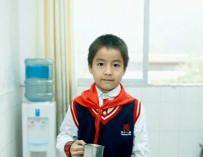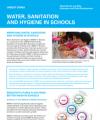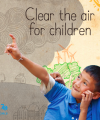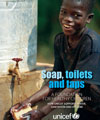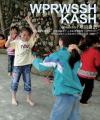Protection of children's rights requires a healthy environment. Every child has the right to survive, grow and develop. Access to safe water and basic sanitation is vital for realization of each of these rights.
 ©UNICEF/China/2011/Yan Lu ©UNICEF/China/2011/Yan Lu
Let every child have equal access to quality sanitation facilities. |
The availability of safe drinking water and basic sanitation has improved for children in China over the last thirty years, but serious problems still exist. UNICEF works with the Chinese government to make sure that these advances in children's access to safe drinking water and basic sanitation continue.
Our Water and Sanitation programme helps children across China, primarily in remote rural areas, among ethnic minority groups, and in the aftermath of emergencies. We work on a wide range of projects, including:
We also play an important role in development of evidence-based government policies and regulations relating to safe water provision planning and sanitation promotion, monitoring and evaluation.
You can help improve children's access to safe drinking water and basic sanitation in China. Take action by talking to your child about the importance of hand-washing with soap after using the toilet and before eating. Or find out how you can support UNICEF today.
Some 3 in 10 people worldwide, or 2.1 billion, lack access to safe, readily available water at home, and 6 in 10, or 4.5 billion, lack safely managed sanitation, according to a new report by the World Health Organization (WHO) and UNICEF.
11/08/2017More...>>
In 2015, UNICEF DPRK Country Office partnered with several government ministries to organize activities that promote handwashing with soap and that were broadcast via national television. Timothy Schaffter, UNICEF Representative to DPRK made a vivid presentation of the magical impact from such a simple practice.
20/01/2016More...>>



























